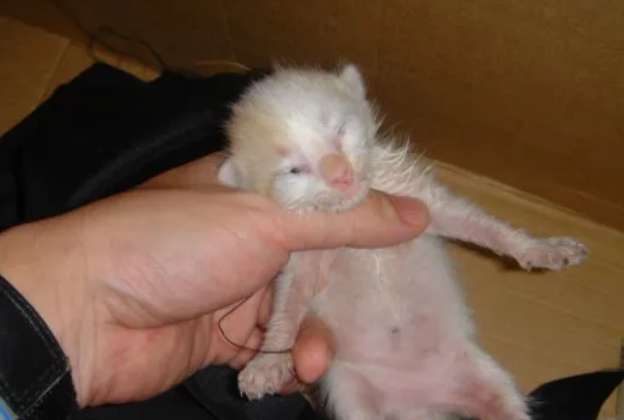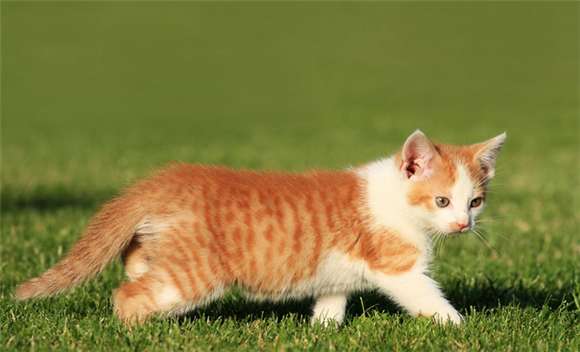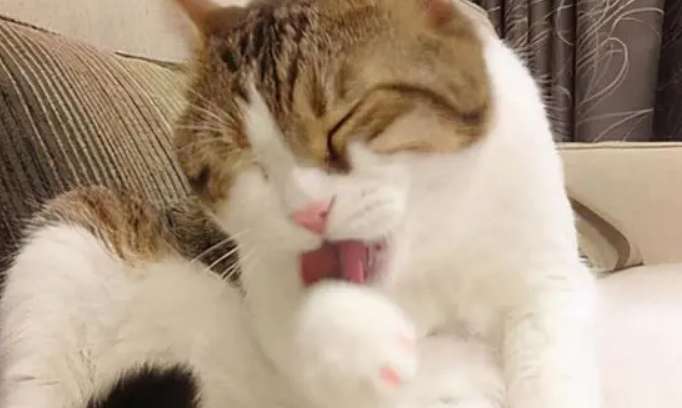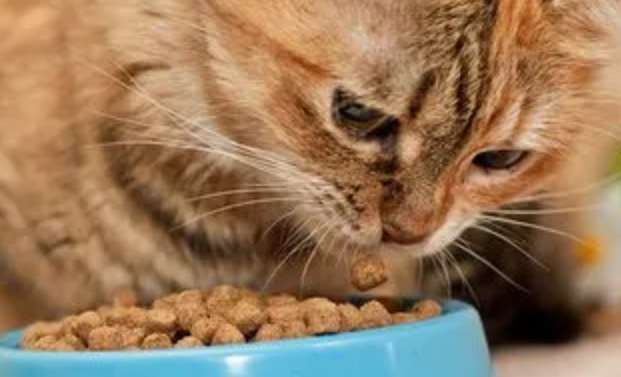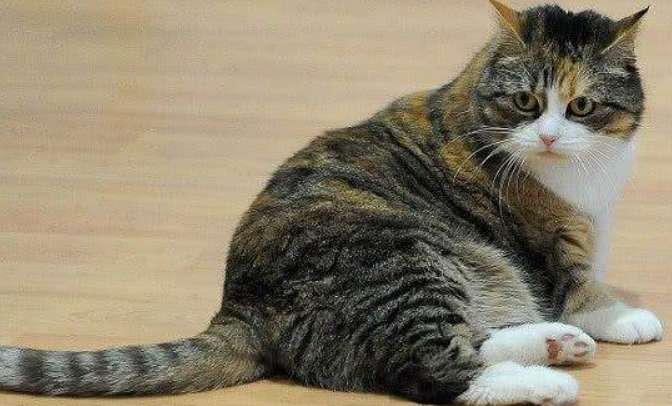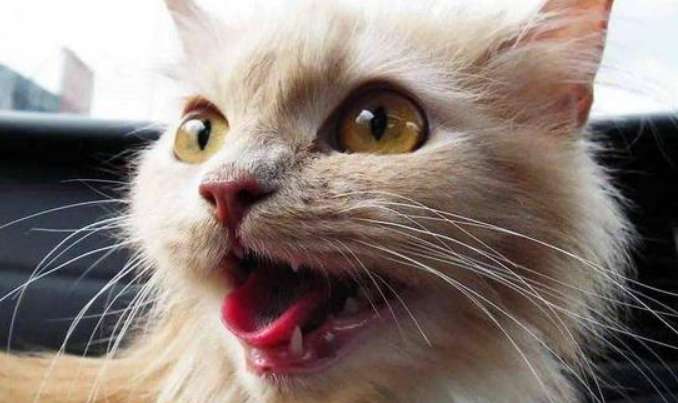Probiotics is a name that everyone is familiar with, but many people only know it in its superficial literal meaning, and not many people really understand it. At present, it is good to find relevant research information on probiotics for humans, but when it comes to probiotics for pets, there are very few research works or related reference materials in this area. This has led to the current pet probiotic market being chaotic and full of quackery.

01
What will you learn from this article?
This article is compiled based on the relevant information collected as much as possible. I hope it can be helpful to everyone.
Through this article you can learn what probiotics are, which cats need probiotics, and what benefits they get from probiotic supplementation. Finally, we recommend the better probiotic products currently on the market.
Before you start reading, what you need to know is that your cat is not just a cat, it is an ecosystem, and the cat’s body is the living environment for billions of microorganisms. As they eat, excrete and reproduce, these little creatures have a profound impact on the environment in which they live.
Just like when yeast and bacteria are mixed in a bowl of flour and water, they become the starter of yeast. When bacteria linger in a bowl of milk, they make yogurt. But only recently have we begun to understand how bacteria in the body convert it into new substances
Research into the impact of the microbiome in animals and humans has found that this internal ecosystem plays a role in nearly every aspect of life. It has an impact on all aspects.
02
Here are some examples of the impact of the microbiome, specifically gut bacteria, on humans and other animals:
A central part of digestion. Gut bacteria ferment the fiber, releasing chemicals that aid in the digestive process.
What have you decided to eat? Your microbiome makes at least some of the decisions for you about what you eat. The researchers found that sterile insects like yeast, and those with diverse gut flora eat both yeast and sugar. If you're craving chocolate, berries, or ice cream, it's probably your gut microbes telling you what they want.
If you transfer gut bacteria from an "anxious" mouse to a calm mouse, the second mouse will start to show signs of anxiety.
Research has found that carefully bred male sterile mice do not produce their own flora;Serotonin, commonly known as the "happy chemical", was reduced by 60%. Low serotonin levels are associated with sadness, obsessive-compulsive disorder, insomnia, and general psychological depression.
Gut bacteria may be linked to autism. People with autism have lower populations of the bacterium Bacteroides fragilis. When mice exhibiting autism-like behaviors were injected with the bacterium, the bacteria appeared to reduce these symptoms. When mice were given 4-ethylphenyl sulfate, a chemical thought to be produced by gut bacteria, they began to have more repetitive behaviors and autism symptoms.
Gut bacteria are somehow entangled with the immune system, but not enough is known about this condition. More or less gut bacteria influence the body's response to various diseases, but again, these clinical responses are still not fully understood.
There’s no doubt that the microbiome is crucial, but probiotic supplementation hasn’t quite become a science yet.
The theory behind probiotic supplementation is that by adding some friendlier microorganisms to the mix, we can amplify the benefits of the microorganisms already present. But things are not that simple, because there are still many questions about microbial research, such as whether this method is really effective, under what circumstances it is effective, and which microbiome can work in the cat's intestines.
There is actually very little research in these directions. From the current research, what we know is that the potential power of probiotics themselves is astounding and helpful to intestinal bacteria. , but further research in this direction, such as how probiotics affect humans and how probiotics affect the intestines of cats and dogs, is very rare.
What we know so far is:
Probiotics definitely help with diarrhea and constipation in cats.
Probiotics can promote overall digestive health.
They help restore beneficial bacteria after antibiotic treatment.
Probiotics may help cats with kidney disease
03
We don’t know which strain is best for cats. So far, most of what we know about the cat microbiome has been extrapolated from what we know about the human microbiome. We can't create an effective probiotic supplement for cats without knowing what should be in the cat's body and how it affects the cat's health.
How do you know if your cat needs probiotics?
Whether healthy or sick, any cat can benefit from probiotic supplementation. In fact, many types of probiotics are a natural part of your cat’s diet. By adding probiotics, we can add back what is lost during food processing.
A cat’s natural diet contains two types of prebiotics, so-called animal fiber, the indigestible part of the animal’s body. It also contains digestive enzymes from the intestines of small animals, beneficial yeasts, and bacteria that are also present in the intestines of that small animal.
Therefore, considering that in a cat’s dietThere seems to be precedent for adding probiotics, and you can think of them as a necessary supplement, much like taurine. Probiotics can also be of great help to cats with certain health problems.
What are the effects of probiotics on diseases?
Probiotics and IBD (Inflammatory Bowel)
IBD is a complex, poorly understood disease that causes persistent nausea, chronic vomiting and diarrhea in many In some cases, it can also cause stress to the person taking care of you. Although the exact cause of IBD is unknown, gut bacteria appear to play a role.
We know that fecal transplants can help cats with IBD by introducing bacteria from another animal into the cat's gut. We also know that borradica can stop diarrhea and reduce inflammation.
For the disease IBD, veterinary academics are currently exploring the treatment of probiotic strains, but so far, IBD can basically only be treated through a combination of diet, supplements and lifestyle.
Probiotics and Constipation
Gut bacteria and fermentation can help retain water in the stool, which is an important process in preventing constipation. When bacteria ferment fiber, they release short-chain fatty acids, which help the stool retain moisture, making it plump or softened and easier to pass from the body. Generally speaking, we will provide constipated cats with fiber to encourage the existing bacteria in their intestines to ferment, but if there are too few bacteria, they will not be able to ferment well.
Theoretically, probiotics could help. The only problem is that we don’t know which probiotics are best for cats with constipation.
Probiotics and Diarrhea
Saccharomyces baumannii is known for its ability to treat acute and chronic diarrhea. Therefore, if you have diarrhea, you can supplement this probiotic.
Probiotics and Allergies
Supplementing with probiotics can help your cat's allergies, but it's not an exact and easy-to-understand science. We know that a combination of Lactobacillus and Bifidobacterium probiotics can help humans deal with allergies. By influencing the way the immune system responds to perceived threats, such as allergens, these probiotics can help control allergy symptoms
However, research on probiotics for allergies is limited and focuses on humans rather than on cats, so it’s hard to say whether they are actually helping cats with allergies.
Probiotics for Cats with Kidney Disease
Probiotics can help cats with kidney disease through intestinal dialysis. At this point, bacteria in the intestines take over part of the kidneys' work, processing at least some of the waste that the failing kidneys are unable to filter out of the body.
The leading probiotic for treating cats with kidney disease is called Azodyl. In theory, this supplementation could reduce nitrogen waste in the blood. Results were mixed, with some cats showing improvement and others not. Overall, Azodyl and other probiotics are not reliable treatments for kidney disease.
The antibiotic effect of probiotics on cats
If your cat has been through a round of antibiotics, probiotic supplementation can help repopulate the gut with good bacteria. Taking probiotics during antibiotic treatment can reduce the risk of antibiotic-induced diarrhea.
04
How to choose the best probiotics for cats
The animal probiotics market is rife with quackery. Although probiotics are a seemingly perfect product. However, the market is often prone to exaggeration and lax product control. Because the potential benefits of probiotics are so great and so little is known about what exactly those benefits are and how to achieve them, vendors peddling them can say almost anything about their products. Like other nutraceuticals, probiotic health claims do not need to be backed up by facts or testing.
Particularly for dogs and cats, there are no regulatory standards for the need or role of probiotics, given how little is currently known about their microbiomes.
As a result, probiotic sellers make huge claims and incorrectly label their products without always ensuring that the product actually works.
A 2018 survey of pet probiotics found that of the 25 products examined, only two had accurate labels that identified the organisms and actually contained what the labels described. 32% of complete products misspelled the name of at least one organism.
Less than 30% of the products met their label's promises, and most didn't even contain the ingredients they claimed, so a total of 8% (2 out of 25 products) had either acceptable The label in turn has growth of viable bacteria that meets or exceeds label requirements. ”
05
How do you know if the probiotics are still alive?
One option currently on the market, often called the milk test, is to pour some of the supplement into Pour into a bowl of milk and let it sit for a day, then come back and check for signs of fermentation. If the milk turns to yogurt, the probiotics are alive. If it's still very thin and milky, that means the probiotics are dead. Test this to see if Really accurate, not really
Milk testing is a good at-home way to test the viability of certain strains of probiotics, like the strains of lactobacilli used in yogurt, it is not specific to all types of probiotics Bacteria are effective, sometimes false positives or false negatives occur. Some non-probiotic additives will produce this reaction, and some will not ferment the milk.
In fact, if you want to verify at home whether the probiotics are still there It is almost impossible to stay alive. So this still depends on the conscience of the manufacturer!
Will refrigeration increase survivability?
Some probiotic labels recommend that you refrigerate the product to maintain freshness . Some do not. Often, those probiotics that require refrigeration are considered premium products, but this is not necessarily true.
Some probiotics do not require refrigeration at all. For example, those stored in vacuum packaging It can survive for a long time without refrigeration, and freeze-dried probiotic products do not need to be refrigerated.Some spore-forming bacteria and yeasts also do not require refrigeration.
Many probiotics do last longer when refrigerated, and refrigeration doesn't seem to hurt, but "best refrigerated" is not a sign of quality.
(1) PurinaPro Plan Fortiflora Probiotics for Cats
Perhaps the most well-known probiotic for cats on the market is Purina Probiotics, which is recommended by veterinarians and given to cats recognized. It only has one type of Enterococcus faecalis - and only 500 million live microorganisms - but by using a well-studied probiotic and wrapping it to ensure its activity, Purina makes it a reliable, stable product , and may play a role.
It is a good choice for cats suffering from diarrhea, and its biggest advantage is as a taster. Fortiflora contains animal digestive agents, which gives it all its irresistible appeal.
Fortiflora is a very popular food additive and probiotic product, with thousands of customers saying it helps their cats.
Benefits
Great tasting—can help cats with a loss of appetite or entice cats to eat new foods
Uses researched probiotics that have proven benefits for cats Know the benefits
Come from a well-known company
Receive good reviews
Disadvantages
Expensive
(2) HyperbioticsPRO- Pets
This probiotic supplement is encased in small pearls for maximum viability and survival. Pearls have a beef flavor that cats like, and their small size makes them particularly easy to eat
Each pearl provides 3 billion CFU, including six types of bacteria. These bacteria include Bifidobacterium lactis, Enterococcus faecalis, Lactobacillus acidophilus, Lactobacillus plantarum, Bifidobacterium longum, and Lactobacillus reuteri.
Compared to other probiotic supplements for cats, this supplement seems to be cheaper than others. It doesn't make any dramatic claims and has a good reputation on FakeSpot
Pros
Good reputation
High survivability and survivability
p>
Easy dosing and administration
High CFU count and diverse bacteria
Disadvantages
Some cats don’t like pearl capsules
(3) NOW Acidophilus 2 Billion
Probiotic supplements for humans are generally more reliable and more standardized than probiotic supplements for pets. This supplement contains Lactobacillus acidophilus, which has been shown to have an impact on the number of beneficial bacteria in the gut and improve the way cells in the body process waste.
This is a good choice for cats who have been treated with antibiotics and is one of the probiotic strains that may be beneficial for cats with allergies.
Advantages
Well-known, safe productProduct
Contains strains of bacteria with clear benefits for cats
Affordable
Potent and appears to have high survivability
Disadvantages
No taste that cats like
(4) now Saccharomyces cerevisiae
This non-colonizing yeast is the safest that can be provided to cats. One of the most effective probiotic products. It is particularly suitable for cats suffering from acute or chronic diarrhea.
The product is well received and has good customer reviews. It's not marketed for cats, but that's a good thing! The products people use tend to be more reliable, more rigorously tested, and more standardized. For example, this product meets standards set by the FDA, Natural Products Association, and Good Manufacturing Practices.
Each capsule contains 5 billion CFU.
Pros
Researched probiotics
Receives positive customer reviews
Cons
No cats Favorite taste
06
Remember, a healthy stomach comes from a healthy lifestyle. This means eating the right foods, practicing proper hygiene, exercising, and even reducing stress.
Diet
We know that in humans, a varied diet rich in fresh fruits and vegetables promotes healthy gut flora. But cats are very different from us, and a diet rich in fruits, nuts, and vegetables is simply not the right choice for them.
Eating foods high in carbohydrates often causes cats’ intestinal microbiota to be filled with sugar-loving bacteria. This can lead to inflammation and possible health problems. While we're not sure yet how these microbes affect health, we do know that cats eating a high-protein diet are more likely to have certain beneficial gut bacteria
Prebiotics
In addition to In addition to your cat's normal diet, you may also need to supplement his diet with prebiotic supplements.
While probiotics increase the number of beneficial gut bacteria, probiotics also help your cat’s gut bacteria flourish. Gut bacteria consume prebiotic fiber and then release short-chain fatty acids during fermentation.
All prebiotics are fibers, but not all fibers are prebiotics. Sources of prebiotic fiber include chicory root, dandelion greens, Jerusalem artichokes, barley and apple peels.
Prebiotics do not choose which organisms eat them. If your cat has some yeast, a prebiotic supplement can work wonders. If your cat has any other type of bacterial imbalance, prebiotic supplementation may feed harmful bacteria in a very negative direction.
Oral Hygiene
Considering that the entire body (from teeth to toes) represents a microbial ecosystem, maintaining a healthy population of bacteria in one place can help beneficial bacteria elsewhere reproduce.
In the late stages of periodontal disease, bacteria in a cat’s mouth can seep through the gums and into the bloodstream.The fluid begins to slowly and poisonously swim throughout the body.
Outdoor Adventures
Playing outdoors exposes your cat to a variety of bacteria and other microorganisms that cats would not encounter inside their bodies. Outdoor activities are also a great way to get exercise and mental stimulation, both of which may have a positive impact on the microbiome
07
Summary
Probiotics are You can give your cat the most helpful supplements. We know they have the potential to positively impact everything from mood to diarrhea, appetite and constipation. However, since there are no relevant industry standards for pet probiotics, it is difficult to find trustworthy products. As we learn more about the cat microbiome and how probiotics can help, the industry will gradually become more stable and transparent.
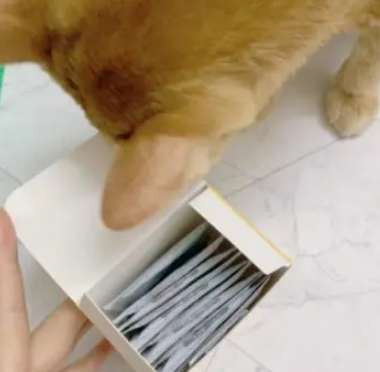
Currently, we can derive tremendous benefits from probiotic supplements for humans and cats that have high CFU counts from well-studied strains. These trusted products can help cats effectively treat diarrhea, constipation, IBD and allergies.
